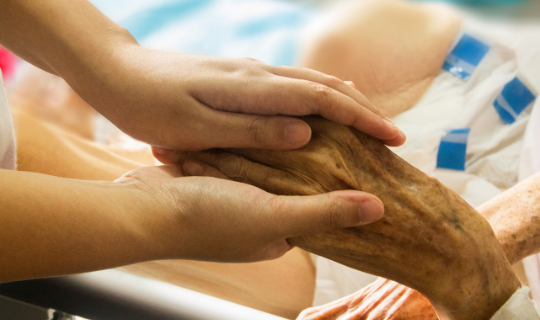It was announced on 5 March 2021 that nurses and allied healthcare professionals will be getting salary increments of up to 14 per cent over the next two years. TheHomeGround speaks with two nurses to understand what this means for the industry, and how support for nurses can be further bolstered.
Em, 24, started working as a nurse at the peak of the pandemic. She welcomes the announcement: “I appreciate it! I think it’s justifiable, seeing the sheer amount nurses have to manage and do. I’m glad the allied health sector is getting a pay raise too, it has been a trying year for everyone.”
Elene, 28, a nurse of over seven years, expressed similar sentiments. She admits, “It is nice to have our work recognised by the government. It feels like all the work has paid off.”
Additionally, Elene believes that the increased salary can serve as a means of “attracting more people to join [the healthcare sector].”
However, she hopes that other areas of nursing beyond pay can be reviewed, such as working hours and future career prospects.
Current struggles of nurses

Nurses face multiple challenges, explains Elene, such as difficulties in communicating with patients and their families, or consecutive days of work without rest.
As a relatively younger nurse, Em says that the workload of being a nurse “can be a lot”, although she acknowledges that it likely “gets easier with experience”. With COVID-19, Em was required to adapt to pandemic protocols while juggling being a full-time nurse.
“It was quite stressful learning how to function as an independent nurse as quickly as possible, while keeping in mind things could take a turn for the worse at any time,” she elaborates.
Elene, too, struggled with the pandemic. “There was a lot of fear initially,” she shares.
She adds, “Having to work in full personal protective equipment along with N95 masks was uncomfortable, especially [when working] long hours to nurse patients… I was also minimising my contact with family and friends outside of work as I worry I could be a carrier of the virus. I was feeling quite emotionally stuffy as I could not go out and have fun with my friends, or even out with my family.”
Even so, both Em and Elene were thankful for the support they had from their loved ones and colleagues throughout the past year.
Existing support for nurses and healthcare workers

In 2019, the National University Health System (NUHS) launched mental wellness services to help nurses and other healthcare workers tackle issues like burnout. Employees under this programme will have access to support services like counselling and lunchtime talks on issues around work-related stress and self-care.
The programme was launched in collaboration with the Association of Psychotherapists and Counsellors Singapore (APACS), who works with NUHS and other stakeholders to send counsellors to hospitals once a week.
Cheryl Ko, President of APACS, explains that healthcare workers, like nurses, face high stress and workload environments. With this initiative, they hope to “help support the healthcare workers in their self-care journey.”
At the moment, this initiative is available in three hospitals – National University Hospital, Alexandra Health, and Ng Teng Fong General Hospital. According to Cheryl, the counsellors see on average four healthcare staff a day when they are at the hospitals.
So far, Cheryl has received good feedback for this programme, with participants sharing that they appreciated having a safe space to talk about issues both work-related and otherwise.
Over time, she is hopeful that this initiative can be expanded to cover more hospitals, and also to increase accessibility to counsellors by ramping up frequency (from the current once a week arrangement).
While Em and Elene think that support for nurses have been mostly adequate, there are still areas for improvement. In particular, Elene hopes for greater support when it comes to career advancements, such as sponsorship opportunities for further studies.
Supporting nurses as a community

Besides institutional support, both Elene and Em highlight that they wished others would look past nursing as a “dirty job” that merely involves cleaning up after patients, and treat nurses with more respect.
“We don’t just change diapers and wipe bottoms,” Em jokes. “[These things] may seem like basic care or may seem unimportant, but understanding the rationale behind what we do is something you are taught since day one in nursing school.”
For instance, changing patients’ diapers helps to prevent infection. While, moving patients during the diaper-changing process alleviates pressure on their backs after lying in bed for long periods.
Elene points out that basic things like cleaning up after patients can help doctors with their diagnoses and treatments.
Em also wishes that the community at large can have a better understanding of their job and treat them with kindness.
“There have been many times when patients or their relatives have been soft-spoken towards other healthcare workers, [especially the doctors]. But when it comes to nurses, people can be a bit more harsh,” Em reveals.
She urges, “We are humans, not robots… and we are doing the best we can.”
Self-care for nurses

For nurses who may be struggling, Cheryl prompts, “Don’t be afraid to reach out for help.”
APACS Vice-President Blythe Chong encourages nurses to ensure they themselves are well taken care of before taking care of others.
“Self-care is not selfish,” she emphasises, “they have to refill their cups first before they pour, if not they have nothing to pour to others.”
To take care of themselves, Cheryl advises nurses to set aside time to do things that they enjoy outside of work. Meanwhile, Blythe recommends going back to the basics and ensuring their basic needs are met. They can do so using the B.E.D.S rule, which stands for Breathe, Eat well, Drink more water, and have Sufficient sleep.
Join the conversations on THG’s Facebook and Instagram, and get the latest updates via Telegram.














